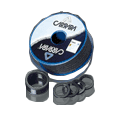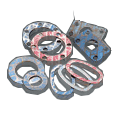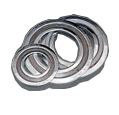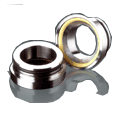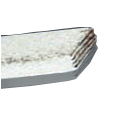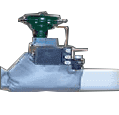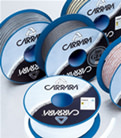With practically anything, design affects performance. It’s the reason a great Formula One driver can go nowhere in their career if they’re driving a poorly-designed car, or why footy ruckmen are always tall, or why sumo wrestlers are always large.
Imagine competing in that sport and weighing 80kg, when the average weight of a sumo wrestler is 150kg… it simply wouldn’t work!
But moving on from sumo wrestling, we’re here to discuss gasket design and how this can affect performance when it comes to sealing ability. Here, Steamline Engineering outline the key ways in which gasket design drastically affects performance.
Material
The choice of material is one of the most influential factors on how well a gasket can perform its sealing duties. Metallic gaskets and paper gaskets are both widely used in a variety of applications, but they could never be substitute for one another. While metallic gaskets are mostly used in high-temperature and high-pressure environments, like pressure vessels and chemical processing, paper gaskets are used in plumbing fixtures, lawnmowers and other household applications.
Swapping these materials would likely result in poor seal integrity, showing that design is important when choosing the correct gasket.
Conformability and resilience
So, why does the material make such a big impact on seal integrity? A lot of this has to do with conformability and resilience. Gaskets should possess sufficient conformability and resilience to adapt to irregularities in mating surfaces and maintain a consistent seal under varying operating conditions. Flexible gasket materials, such as elastomers or non-asbestos fibres, can conform to surface imperfections and withstand thermal expansion, vibration, and movement without compromising seal integrity. Metallic and graphite gaskets, on the other hand, don’t possess the same conformability and are therefore less suitable for sealing imperfections.
Chemical resistance
Material choice also determines chemical resistance – an important factor for industrial applications. Some gaskets are designed to withstand chemical attack from corrosive fluids, gases and vapours. Metallic gaskets are a great example; they’re used in oil and gas production, petrochemical processing and marine applications.
Manufacturer and brand reputation
But design isn’t just influenced by material. There’s another equally important factor at play: who’s making the gasket? Manufacturer and brand reputation can’t be ignored when it comes to seal integrity for gaskets. Two gaskets, made from similar materials for similar applications, may be completely different in seal ability, with a high-quality brand outperforming its low-quality counterpart again and again.
But at Steamline Engineering, we only supply the world’s best gasket brands, renowned for their seal integrity and durability. Stocking brands like Carrara and Firefly, Steamline is Australia’s best retailer of quality gaskets, as well as other industrial equipment like thermal tapes and seals, welding blankets and valve packing materials. Browse our range our contact our team of gasket experts today.



